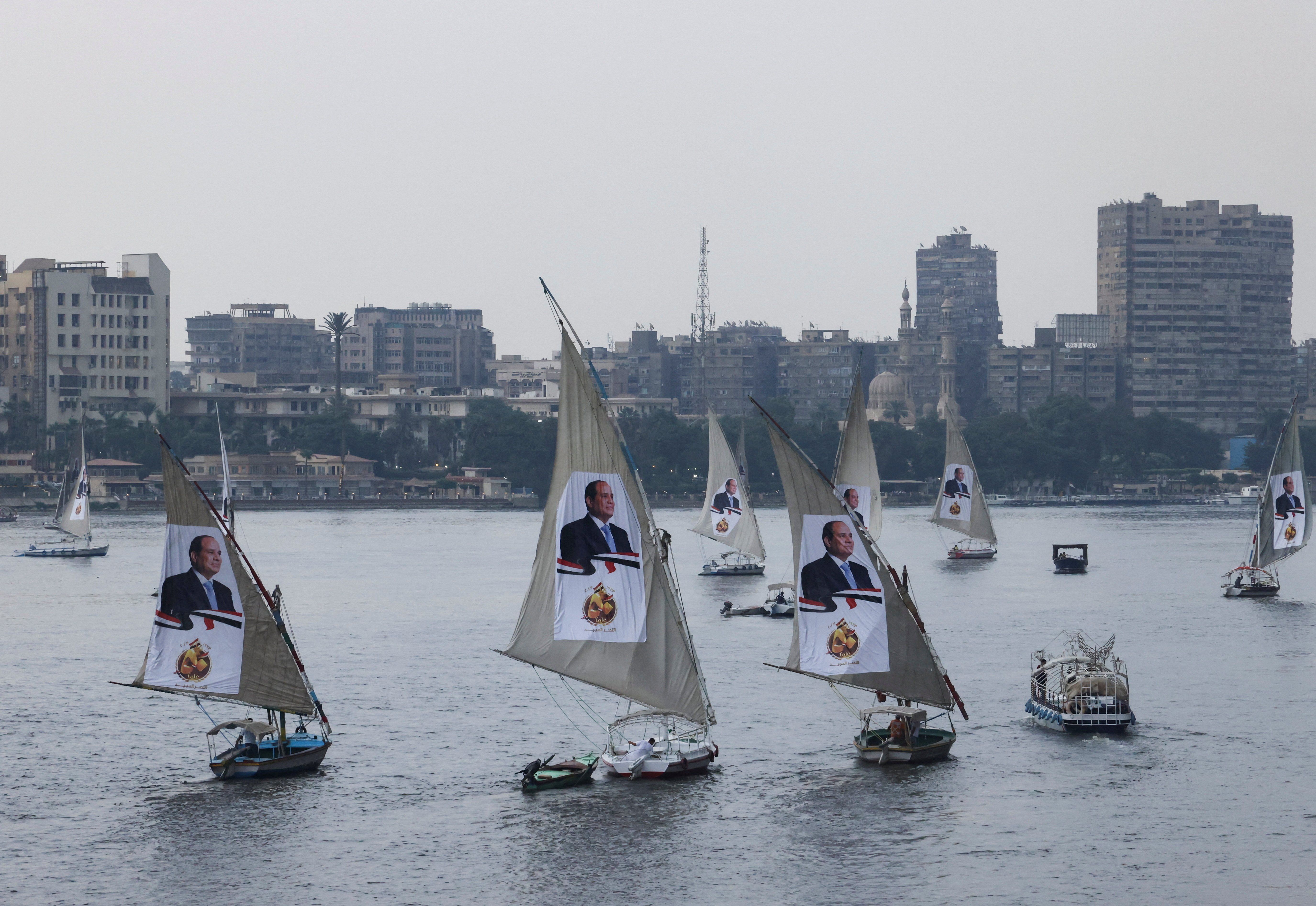President Abdel Fattah el-Sisi has confirmed that he’ll run for a third time in Egypt’s presidential election on Dec. 10-12. This follows a 2019 change to the constitution that extended term limits, allowing el-Sisi – a former army general who stands accused of cracking down on opposition forces, civil society, and journalists – to stay in power until 2030.
Quick background. El-Sisi, a national security absolutist, came to power in 2013 after leading a coup against the democratically elected Muslim Brotherhood government led by Mohamed Morsi.
El-Sisi said a series of draconian social measures in subsequent years were needed to instill order after the tumultuous years of the Arab Spring, but he’s detained journalists without trial, weaponized internet access, and detained anti-government protesters. He was elected in 2014 and 2018 with over 95% of the vote, margins largely attributed to his gutting of the opposition.
Will these elections be free and fair? While 65 million Egyptians are eligible to vote, there are widespread reports that the state is threatening and bribing opposition figures – and their supporters. (Candidates need 25,000 public signatures to run or the backing of 20 members of parliament, which is stacked largely with el-Sisi loyalists.)
There are even reports that recipients of food and financial aid have been denied benefits unless they endorse the incumbent’s candidacy.
El-Sisi has long promised to rescue Egypt’s battered economy, but the country’s finances remain in tatters, and there is a dire shortage of foreign reserves. Meanwhile, the national poverty rate has skyrocketed – a situation worsened by increased food and fuel prices sparked by Russia’s invasion of Ukraine. Egypt’s currency has also shed half of its value against the dollar over the past year alone.
When questioned recently about his prioritization of expansive infrastructure projects while more and more of the middle class is plunged into poverty, El-Sisi replied: “Don’t you Egyptians dare say you would rather eat than build and progress.”
In 2019, the government cracked down on rare anti-regime protests and that can be expected again if Egyptians demonstrate against el-Sisi’s likely reelection.
